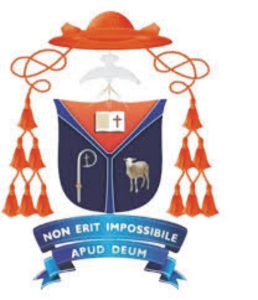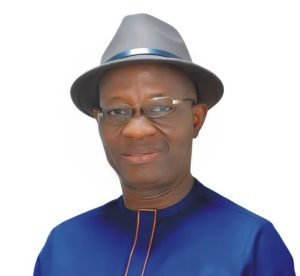Pay Us Outstanding Arrears Of Salaries, Check-Off Dues, Others To Avert Looming Strike, Says AAU-JAC

By Simeon OSAJIE
The Joint Action Committee (JAC) of the state-owed Ambrose Alli University’s Chapters of the Senior Staff Association of Nigerian Universities (SSANU), the National Association of Academic Technologists (NAAT) and the Non-Academic Staff Union of Educational and Associated Institutions (NASU) has warned of a looming strike action in the University if the University fails to pay all outstanding arrears of salaries, check-off dues and other sundry deductions.
In a press statement rising from a crucial meeting recently at Ekpoma Headquarters of Esan West local government area of Edo State on 30th December, 2021, the University’s JAC of SSANU, NAAT and NASU recalled its memorandum of 6th December, 2021 where the University Management was given on or before Monday, 10th January, 2022 to pay all outstanding arrears of salaries, check-off dues and other sundry deductions, failing which JAC would resume its earlier suspended strike.
The University’s JAC urged the Visitor to the University and Governor of Edo State, Mr. Godwin Obaseki to ensure the payment of all outstanding arrears of salaries, check-off dues and other sundry deductions to avert the looming strike.
This is contained in a statement signed by Comrade B. J. Omoikhoje and Comrade J. N. Nweke, (Chairman and Secretary of the University’s Chapter of NAAT), Comrade C. Odiamehi and Comrade S. Akhimien, (Acting Chairman and Secretary of the University’s Chapter of NASU) and Comrade Tom O. Onofua and Comrade E. O. Omokhafe, (Chairman and Secretary of the University’s Chapter of SSANU).The University’s JAC of SSANU, NAAT and NASU said it was in total support of “the suits instituted by ASUU, AAU, Ekpoma Chapter, vis-a-vis the legality or otherwise of the Special Intervention Powers Law 2021 and the 30-day notice of legal action over the recently conducted biometrics verification exercise.
The JAC’s threat of industrial action is coming on the heels of widespread displeasure by all staff unions in the University over the activities of the Special Intervention Team (SIT) that was recently set up by the state government to exercise the full functions of the Governing Council of the University.
The University’s JAC had observed with dismay that “it would surprise the general public to know that since the coming of the Special Intervention Team (SIT) the University has continued to sink more in its woes rather than seeing a light of hope”.
In particular, the JAC of SSANU, NAAT and NASU had accused the SIT and some of its members of not doing anything with regards to “upgrading the University, reviving the regulations governing the services of staff, developing a means of funding nor create the expected industrial harmony, as charged by the Governor”, adding that “in its eight (8) months of administering the University, the SIT has worsened the conditions of the University, especially in the area of proper policy direction and staff welfare”, accusing the SIT and its members of creating bogus allowances for themselves, siphoning more than N30,000,000.00 (Thirty Million Naira) as allowances from incessant meetings, feeding, accommodation in its short period in the University.
The University’s Chapter of ASUU on its part had said that it “is bemused to observe that the activities of the SIT in the University since inauguration as a result of the abysmal mismanagement of the University by the Prof. Ignatius Onimawo’s Administration leaves much to be desired and have consequently negated the supposed functions of a Governing Council and defeated the purported interventionist or reformist agenda of the state government in the University.
ASUU accused and berated the SIT and its members for lacking adequate knowledge of the nature, functions and workings of a Governing Council of a University.







